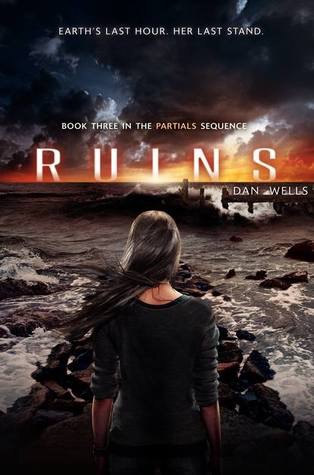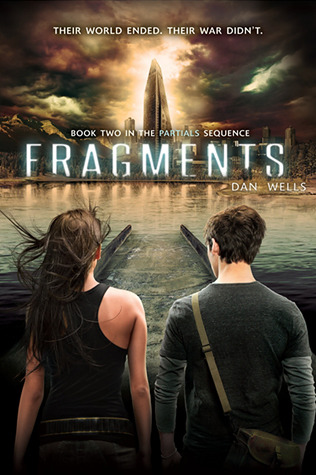 The covers for these books are probably the most unimaginative covers possible. If I wasn’t a fan of Dan Wells I never would have read these books.
The covers for these books are probably the most unimaginative covers possible. If I wasn’t a fan of Dan Wells I never would have read these books.
Ruins is a good end to this trilogy. It’s more gruesome and violent and filled with more drastic decisions. Kira and her friends are faced with the world ending again as the Partials invade the human settlement on Long Island in a hope of finding the expiration that they are all rapidly approaching and the humans retaliate with unmitigated force as they face another kind of extinction themselves.
Kira has discovered the cure for both their problems but she just has to make somebody listen to her before they kill each other.
This is an exciting novel and a good end for the trilogy with a satisfying conclusion. Dan Wells throws some horror elements into this book, some of them gruesome and others terrifying and that is where Dan Wells shines. He is always at his best when he’s scaring the reader into having nightmares.
The relationships are not quite as believable. There’s not enough emotion and too much talking about it to feel real.
There isn’t much more to say. This is the conclusion of a trilogy and Wells mostly sticks the landing. There are some frustrating characters that make some unfortunate choices and there are some wonderful characters that keep the book interesting and entertaining to the end.
I liked this series. It had a good premise that builds some tension right form the start. Dan Wells taught me in the first book that medical lab work could be tense and in this book he taught me about character choices.
My biggest peeve with this book, though, is the magic of genetics. In the second book the use of computers was so outside the realm of how computers work that it was completely unbelievable. This book has characters doing genetics to change the weather and create diseases and heal themselves and live in toxic wastelands and breathe underwater and kill the human race and make people live only eighteen years and eventually it felt like magic rather than science. There was a team of geneticists that can do pretty much anything they want, and in a very short period of time (a few months) and it continually popped the balloon from which I had suspended my disbelief. After falling enough times I gave up and stayed on the ground.
The tension is real, though, and this wraps up a series that I have enjoyed reading.


